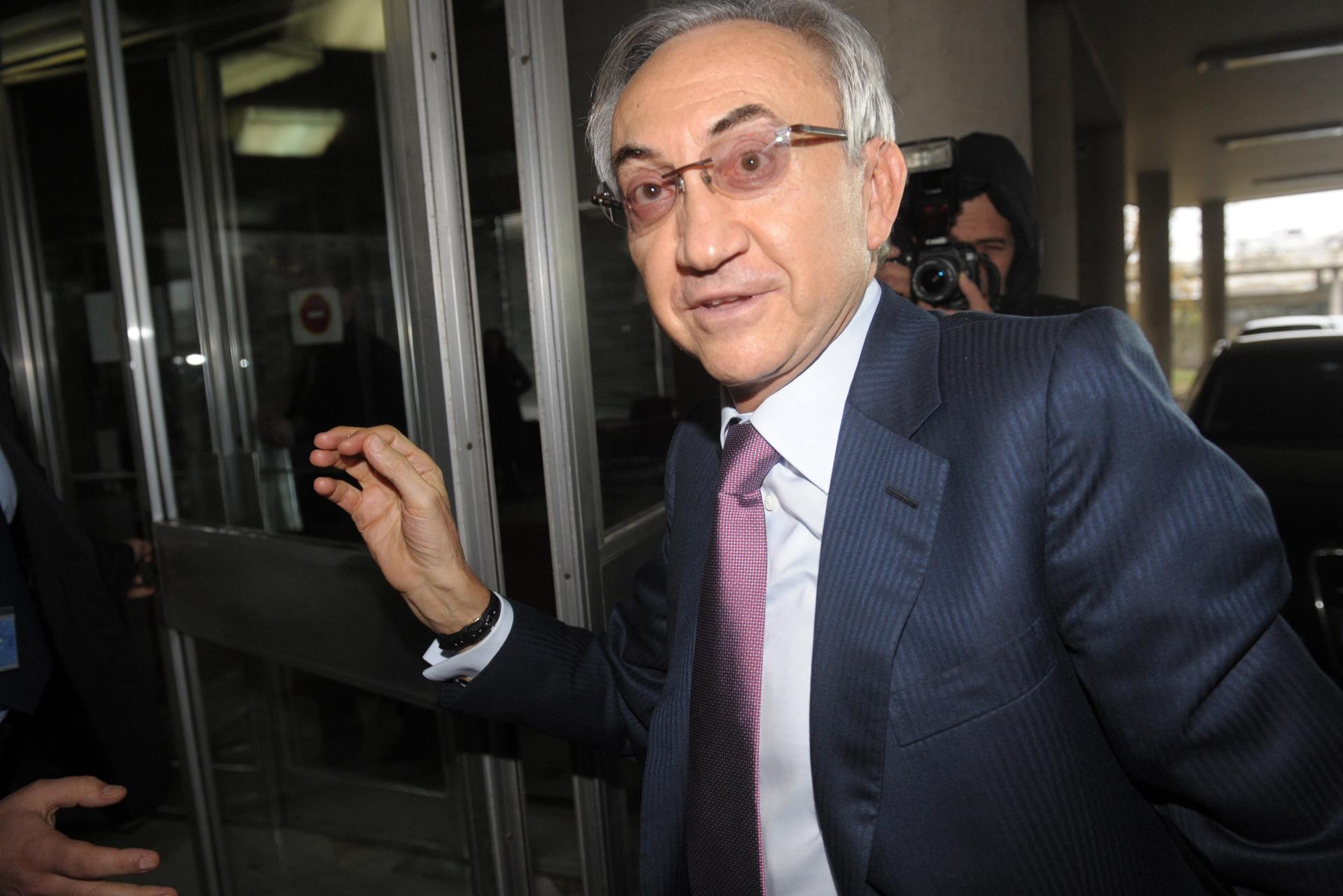Serbia’s anti-corruption campaign must adhere to the rule of law
Serbia’s tycoon Miroslav Miskovic arrives at the Interior Ministry in Belgrade. One of Serbia’s richest men, Miskovic is one victim of the new Serbian government’s stated crackdown on corruption.
COLUMBIA, South Carolina — A growing international consensus recognizes that a commitment to fighting corruption is essential to establishing the rule of law in emerging democracies.
For many years, the international anti-corruption agenda was promoted almost exclusively by the United States. For instance, the Foreign Corrupt Practices Act, enacted in 1977, unilaterally prohibited US companies from paying bribes to foreign government officials in return for business opportunities.
For years, in spite of efforts through the Organization for Economic Cooperation and Development (OECD), few other countries held their companies to this same high standard, often harming US business interests abroad.
Today, however, the European Union (EU) has joined the United States in actively promoting anti-corruption efforts. This is especially important now that many former communist countries have made or are making the transition to free-market democracy and are joining, or seeking to join, the EU.
Aspiring to take its place in the EU, Serbia has received this message loud and clear: Fighting corruption and respecting the rule of law are European values to which Serbia must adhere.
In order to keep its accession prospects on track, Serbia has been trying to signal that it understands the importance of combatting corruption. Unfortunately, when prosecuting those accused of wrongdoing, the Serbian government’s own adherence to the rule of law has sometimes been problematic.
Perhaps the most visible — and most problematic — example of Serbia’s anti-corruption efforts involves the arrest and detention of Miroslav Miskovic, one of the country’s wealthiest businessmen.
Miskovic was arrested in December under Serbia’s anti-corruption laws, and his arrest was hailed by the Serbian government as a sign of its willingness to take on one of the most powerful men in the country.
While an attack on corruption is welcome, several aspects of the Miskovic case are cause for concern.
First, Miskovic has been held in jail for almost four months. But he has not yet been charged with any crime. Details of the investigation are routinely leaked to the news media. But formal charges have not been filed.
Second, he is being investigated under a communist-era law prohibiting “abuse of office,” Serbia’s analog to the laws under which controversial figures in other formerly communist countries have been prosecuted.
This law dates back to the era when most large business enterprises were government-owned. But now that private ownership has been restored throughout much of Serbia’s economy, it makes little sense to prosecute a business executive as if he were a government official. Indeed, Miskovic is not a government official. He is a private businessman, who made much of his wealth during the era of privatization in Serbia.
Serbia has been told by EU authorities that, in order to modernize its criminal law, it needs to stop applying this law to private business people. But the government persists in doing so.
Third, there are serious factual problems with the government’s case. Based on the information that has been leaked to the media, it appears that the Serbian government is portraying routine business transactions such as paying interest at market rates and earning a profit on sales of stock as violations of law. Such charges undermine a climate of investment and challenge bedrock principles of a free-market economy.
Perhaps most important for upholding the rule of law, these factual issues should be resolved in a court of law, with Miskovic afforded the presumption of innocence and the opportunity to defend himself. He should not be detained without charge and tried in the press.
That is what is meant by “the rule of law.” And a serious effort to combat corruption can only take place in the context of the rule of law.
The rule of law is not merely about enacting laws (or in this case enforcing decades-old laws). It requires transparency, due process and accountability. It is important that Serbia now has elected leaders, privately owned companies, and a campaign against corruption. But at the end of the day, the rule of law requires political will at the highest levels of government and at each layer below.
The Miskovic case is an important test of Serbia’s commitment to the rule of law. For the sake of its future in the EU — and in the community of free-market democracies throughout the world — this is a test that Serbia cannot afford to fail.
Joel H. Samuels is an associate professor of law at the University of South Carolina and is deputy director of the Rule of Law Collaborative. He frequently lectures on rule of law promotion abroad to US government officials from the Department of Defense, the Department of Justice, the State Department and USAID.
The story you just read is accessible and free to all because thousands of listeners and readers contribute to our nonprofit newsroom. We go deep to bring you the human-centered international reporting that you know you can trust. To do this work and to do it well, we rely on the support of our listeners. If you appreciated our coverage this year, if there was a story that made you pause or a song that moved you, would you consider making a gift to sustain our work through 2024 and beyond?
